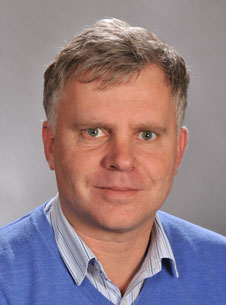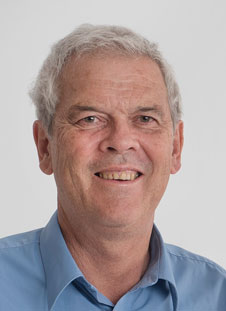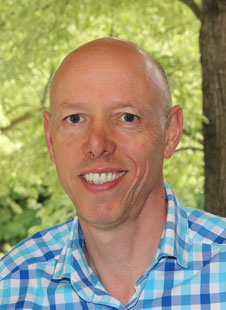The goal of eliminating the top infectious disease killer in the world, tuberculosis, among Māori has earned University of Otago researcher Professor Philip Hill $250,000 from the Health Research Council to undertake a feasibility study.
Tuberculosis (TB) is the world’s leading cause of death due to an infectious disease with global control strategies unable to eliminate the disease and resistance to TB drugs increasing.
Although New Zealand has a low rate of TB, new cases continue to occur and half of New Zealand-born TB patients are Māori. Drug-resistant TB is now present in New Zealand also.

Professor Philip Hill
The McAuley Professor of International Health and Co-Director of the University of Otago’s Centre for International Health, Professor Hill says it is likely there is a large reservoir of dormant, or latent, TB infection in older Māori, which will continue to reactivate to cause TB disease and to infect new people.
“This ‘reactivation’ can be avoided through preventive treatment and we hope that identifying and treating latent TB infection could play a major part in the elimination of TB among Māori,” Professor Hill explains.
He and his team will assess whether it is feasible to conduct a large-scale skin test survey for latent TB infection, with appropriate investigation for TB disease in those who test positive, across both urban and rural Māori in New Zealand.
Professor Hill hopes the study will be the first step towards characterising the reservoir of latent TB infection among Māori so strategic intervention with preventive treatment can be considered.

Professor Steve Chambers
In a bid to progress the study and in the hope that the work will be led increasingly by Māori, Professor Hill and his team have established a strategic new partnership. The Centre for International Health is working with the Director of Kōhatu, the University’s Centre for Hauora Māori, Associate Professor Joanne Baxter, to partner with the Waikato District Health Board’s Te Puna Oranga service, led by Dr Nina Scott and will co-supervise a Māori research fellow.
Health Research Council feasibility study grants go towards testing the critical, practical issues affecting a planned larger study. The council this year received 31 applications for these grants, and gave approval to nine, totalling $2,230,458.
Another two University of Otago researchers, both based in Christchurch, were among the successful recipients.
Professor Steve Chambers, from the Department of Pathology, will receive $250,000 to test the feasibility of vitamin C as a treatment for people in hospital with pneumonia. The study will compare survival rates for people given the vitamin in addition to standard treatment.
If successful, the study could be scaled up to a larger clinical trial and, ultimately, become a standard treatment for the condition, Professor Chambers says.

Professor Richard Porter
Head of the Department of Psychological Medicine, Professor Richard Porter, will receive $246,986 for a feasibility study of psychotherapy and bipolar disorder. Psychotherapies are very helpful in treating bipolar disorder but not widely available in the public health service because they are considered expensive and impractical.
Professor Porter and his team will trial the introduction of a specific psychotherapy called “Social Rhythms Therapy” into routine clinical practice. If this is successful a larger clinical trial will compare outcomes for patients who receive this therapy with those who receive current conventional treatment.
University of Otago Deputy Vice-Chancellor (Research and Enterprise) Professor Richard Blaikie is pleased to learn of the researchers’ success on the back of last week’s announcement of almost $1.5 million of HRC funding for emerging researchers.
“I am very pleased that the strength of Otago research capability has been recognised in this way.”
For further information, please contact:
Professor Philip Hill
McAuley Professor of International Health
Tel 03 479 9462
Email Philip.hill@otago.ac.nz
Professor Richard Porter
Head of Department of Psychological Medicine
Email Richard.porter@otago.ac.nz
Liane Topham-Kindley
Senior Communications Adviser
Tel 03 479 9065
Mob 021 279 9065
Email liane.topham-kindley@otago.ac.nz
For matters relating to Māori media
Matiu Workman
Māori Communications Adviser
Tel 03 479 9139
Mob 021 279 9139
Email matiu.workman@otago.ac.nz
A list of Otago experts available for media comment is available elsewhere on this website.
Electronic addresses (including email accounts, instant messaging services, or telephone accounts) published on this page are for the sole purpose of contact with the individuals concerned, in their capacity as officers, employees or students of the University of Otago, or their respective organisation. Publication of any such electronic address is not to be taken as consent to receive unsolicited commercial electronic messages by the address holder.
